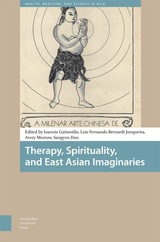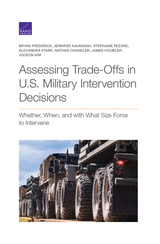
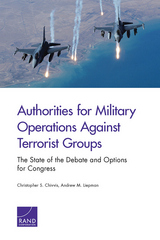
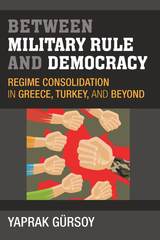
Based on more than 150 interviews with Greek and Turkish elites, Gürsoy offers a detailed analysis of both countries from the interwar period to recent regime crises. She argues that officers, politicians, and businesspeople prefer democracy, authoritarianism, or short-lived coups depending on the degree of threat they perceive to their interests from each other and the lower classes. The power of elites relative to the opposition, determined in part by the coalitions they establish with each other, affects the success of military interventions and the consolidation of regimes.
With historical and theoretical depth, Between Military Rule and Democracy will interest students of regime change and civil-military relations in Greece, Turkey, Thailand, and Egypt, as well as in countries facing similar challenges to democratization.
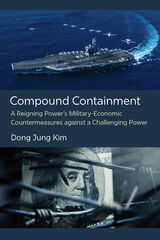
When does a reigning great power of the international system supplement military containment of a challenging power by restricting its economic exchanges with that state? Scholars of great power politics have traditionally focused on examining a reigning power’s military containment of a challenging power. In direct contrast, Compound Containment demonstrates that these conventional studies are flawed without a sound understanding of the multilayered aspects of containment strategy in great power politics. Since economic capacity and military power are intimately linked to one another, countering a challenging power requires addressing both economic and military dimensions. Nonetheless, this nexus of security and economy in a reigning power’s response to a challenging power cannot be explained by traditional theories that dominate research in international security. Author Dong Jung Kim fills a gap in the scholarship on great power competition by investigating when a reigning power will make its military containment of a challenging power “compound” by simultaneously employing restrictive economic measures. Its main theoretical claims are corroborated by an analysis of key historical cases of reigning power-challenging power competition. This book also offers policy prescriptions for the United States by examining whether the United States is in a position to complement military containment of China with restrictive economic measures.
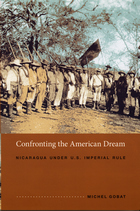
Gobat focuses primarily on the reactions of the elites to Americanization, because the power and identity of these Nicaraguans were the most significantly affected by U.S. imperial rule. He describes their adoption of aspects of “the American way of life” in the mid–nineteenth century as strategic rather than wholesale. Chronicling the U.S. occupation of 1912–33, he argues that the anti-American turn of Nicaragua’s most Americanized oligarchs stemmed largely from the efforts of U.S. bankers, marines, and missionaries to spread their own version of the American dream. In part, the oligarchs’ reversal reflected their anguish over the 1920s rise of Protestantism, the “modern woman,” and other “vices of modernity” emanating from the United States. But it also responded to the unintended ways that U.S. modernization efforts enabled peasants to weaken landlord power. Gobat demonstrates that the U.S. occupation so profoundly affected Nicaragua that it helped engender the Sandino Rebellion of 1927–33, the Somoza dictatorship of 1936–79, and the Sandinista Revolution of 1979–90.
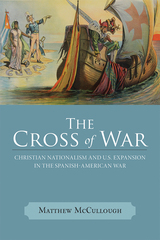
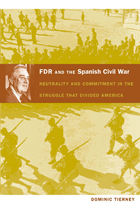
Between 1936 and 1939, Roosevelt’s perceptions of the Spanish Civil War were transformed. Initially indifferent toward which side won, FDR became an increasingly committed supporter of the leftist government. He believed that German and Italian intervention in Spain was part of a broader program of fascist aggression, and he worried that the Spanish Civil War would inspire fascist revolutions in Latin America. In response, Roosevelt tried to send food to Spain as well as illegal covert aid to the Spanish government, and to mediate a compromise solution to the civil war. However unsuccessful these initiatives proved in the end, they represented an important stage in Roosevelt’s emerging strategy to aid democracy in Europe.

Thanks to massive deception and self-deception by media and politicians, even the anti-globalisation movement failed to grasp the implications of the aggressive military globalisation pursued by the United States, from Iraq to Afghanistan and beyond.
In this study, Diana Johnstone identifies the common geopolitical interests running through all these past, present and future military interventions. She argues persuasively that outside intervention creates rather than solves problems and cannot be justified.
Johnstone shows that the 'War in Kosovo' was in reality the model for future destruction of countries seen as potential threats to the hegemony of the 'International Community', led by the United States.
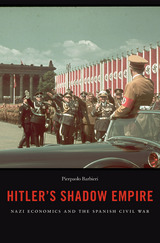
Pitting fascists and communists in a showdown for supremacy, the Spanish Civil War has long been seen as a grim dress rehearsal for World War II. Francisco Franco’s Nationalists prevailed with German and Italian military assistance—a clear instance, it seemed, of like-minded regimes joining forces in the fight against global Bolshevism. In Hitler’s Shadow Empire Pierpaolo Barbieri revises this standard account of Axis intervention in the Spanish Civil War, arguing that economic ambitions—not ideology—drove Hitler’s Iberian intervention. The Nazis hoped to establish an economic empire in Europe, and in Spain they tested the tactics intended for future subject territories.
“The Spanish Civil War is among the 20th-century military conflicts about which the most continues to be published…Hitler’s Shadow Empire is one of few recent studies offering fresh information, specifically describing German trade in the Franco-controlled zone. While it is typically assumed that Nazi Germany, like Stalinist Russia, became involved in the Spanish Civil War for ideological reasons, Pierpaolo Barbieri, an economic analyst, shows that the motives of the two main powers were quite different.
—Stephen Schwartz, Weekly Standard
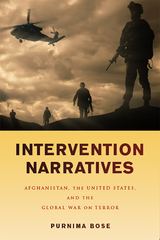
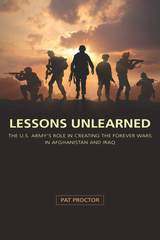
In this blunt critique of the senior leadership of the U.S. Army, Proctor contends that after the fall of the Soviet Union, the U.S. Army stubbornly refused to reshape itself in response to the new strategic reality, a decision that saw it struggle through one low-intensity conflict after another—some inconclusive, some tragic—in the 1980s and 1990s, and leaving it largely unprepared when it found itself engaged—seemingly forever—in wars in Afghanistan and Iraq. The first book-length study to connect the failures of these wars to America’s disastrous performance in the war on terror, Proctor’s work serves as an attempt to convince Army leaders to avoid repeating the same mistakes.
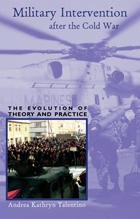
Military Intervention After the Cold War explores how and why this change took place, looking at how both ideas and actions changed in the post-Cold War period to make military intervention a tool of international security and a defining characteristic of the international system. Although it is often touted as a strategy to rebuild collapsed states, the examples of success are few and far between. Andrea Kathryn Talentino argues that standards of human rights and responsible governance have become part of the definition of international security. She addresses questions that are vital in the post-9/11 world, where weak and collapsed states are recognized as permissive and at times supportive environments for criminal actors.
The specter of terrorism has placed even greater emphasis on the need to understand why military intervention happens and how it could be more effective. With the news full of stories on intervention and nation-building, scholars, graduate and undergraduate students, and readers interested in understanding global interdependence will find Military Intervention After the Cold War an indispensable book.Andrea Kathryn Talentino is an assistant professor of international relations at Tulane University, New Orleans.The author of numerous articles on military intervention and post- conflict rebuilding, she is currently focusing on the link between nation-building and political violence.

Currently the international debate on nation-building is heavily dominated by US actors and authors, especially by writers connected to the Bush administration or its policies. This book presents academic and political alternatives, presenting a critical view from 'Old Europe'.
The book combines academic research and analysis with policy orientation, with contributors from both fields. It clarifies the terminology distinguishing developmental, peace-related, imperial and analytical approaches to nation-building. Highlighting its connections to globalisation, democracy, ethnic and religious minorities, the contributors consider case studies such as Somalia, the Balkans, Afghanistan, Iraq, and Nigeria.
Dr. Jochen Hippler, Political Scientist at the University of Duisburg-Essen and its Institute for Development and Peace (INEF), specialises in regional conflicts and interventionism in the Third World, political identities, and the Middle East. He is the former Director of the Transnational Institute in Amsterdam and the author of numerous books and articles including Pax Americana (Pluto Press 1994), The Democratisation of Disempowerment (Pluto Press 1995) and The Next Threat (Pluto Press 1995).
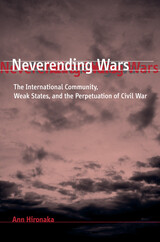
Since 1945, the average length of civil wars has increased three-fold. What can explain this startling fact? It can't be ethnic hatreds and injustices—these have been around for centuries. In Neverending Wars, Ann Hironaka points to the crucial role of the international community in propping up many new and weak states that resulted from the decolonization movement after World War II. These impoverished states are prone to conflicts and lack the necessary resources to resolve them decisively. International aid and external military intervention from the international community often perpetuate such conflicts. And the Cold War further exacerbated the problem by providing large amounts of military aid. The continual infusion of weapons and resources can prolong such wars indefinitely.
This timely book will provide an entirely new way to look at recent, vicious civil wars, failed states, and the terrorist movements that emerge in their wake.
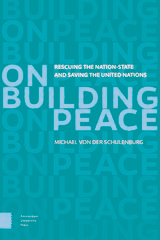
While the West is increasingly preoccupied with its internal problems, threats to global peace have fundamentally changed: wars among nation-states and their alliances, once the dominant scourge of humankind, have almost disappeared and are replaced by a triple threat from intra-state armed conflicts, the failing of nation-states and the rise of belligerent non-state actors. The global peace we felt within our reach in 1991, is escaping us.
On Building Peace seeks the answers that the UN Charter can no longer provide. Once meant as a guarantor for peace, the Charter was never designed to deal with intra-state conflicts and today its core principles are eroded. The book makes two rather simple, but possibly unpopular suggestions for preserving future peace: first, we must rescue the nation-state, not despite but because of globalization, and second, we must not further undermine the United Nations, but expand its Charter for dealing collectively with this triple threat.
The struggle for survival in a world of limited resources and environmental degradation will deepen intra-state conflicts. We must prevent slipping back into a new round of Cold War-type confrontations and focus on finding collective solutions for building peace. For the sake of billions of people of future generations, we cannot get this wrong.
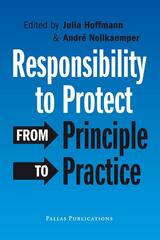
This thoughtful work is a major contribution towards clarifying what RtoP can offer, moving from principle to practice. It spans the disciplines of international law, international relations, and moral philosophy.
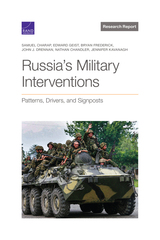
READERS
Browse our collection.
PUBLISHERS
See BiblioVault's publisher services.
STUDENT SERVICES
Files for college accessibility offices.
UChicago Accessibility Resources
home | accessibility | search | about | contact us
BiblioVault ® 2001 - 2025
The University of Chicago Press




